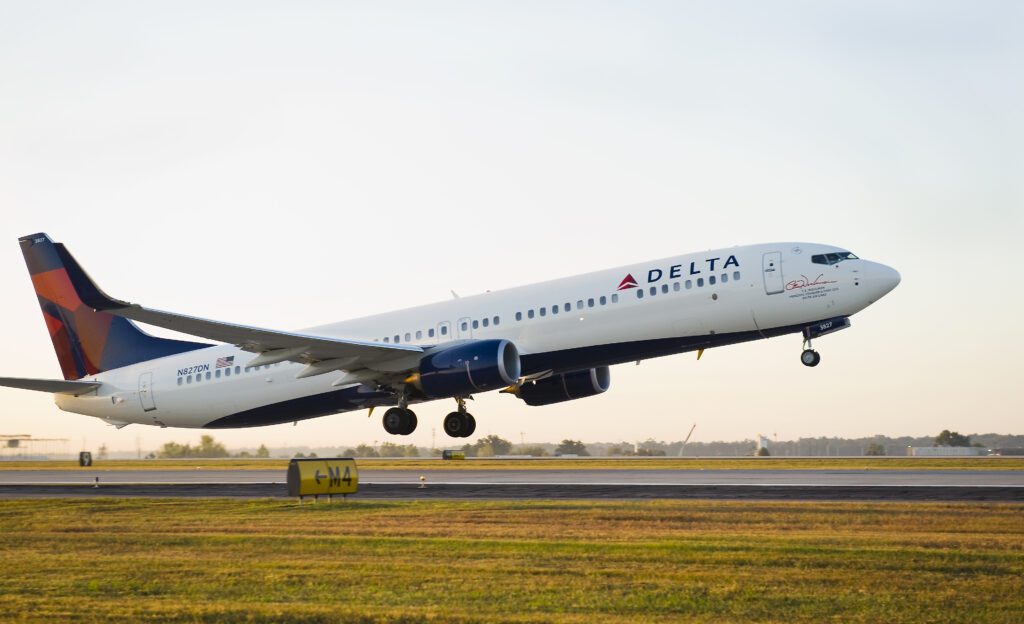
Skift Take
Federal agencies are currently investigating whether airlines have devalued frequent flyer miles to make it more difficult for consumers to redeem award tickets.
Have the loyalty programs of the biggest U.S. airlines grown so huge that smaller airlines can’t compete? That was one of the concerns during a hearing Thursday with the Department of Transportation and the Consumer Financial Protection Bureau.
Transportation Secretary Pete Buttigieg said he would be concerned if the Department of Transportation finds evidence of airlines operating their programs in a way that makes it more difficult for smaller carriers to enter the market.
“That would by definition be a competition concern,” Buttigieg said.
Buttigieg’s remarks come as the DOT announced in December that it would investigate whether airlines have devalued frequent flyer miles, which would make it more difficult for customers to book reward tickets.
However, Buttigieg said the DOT was still in the middle of its investigation and had not reached any conclusions yet.
CFPB director Rohit Chopra said his agency has found some initial evidence of airlines and credit card companies devaluing points and miles.
“More recently we’ve seen credit card rewards take center stage in the industry’s marketing blitzes particularly in the form of frequent flyer miles and other proprietary points programs,” Chopra said. “The largest and most dominant airlines play a massive role in this market.”
He said the CFPB discovered in an initial review that credit card companies and airlines can “quickly and dramatically” devalue points by making it more difficult to redeem them or limiting what items can be purchased with points.
The CFPB also found that airlines have been selling inflated points to consumers while credit card issuers receive those same points at a much lower price, Chopra said.
“This not only creates confusion about the true value of the points but also raises some questions about fairness,” he said.
No Big 4 Airlines Present
The loyalty programs and credit cards of the four largest airlines — American, Delta, United and Southwest — took center stage at the hearing. But none of the Big Four airlines were present.
Southwest said it “remained engaged with the DOT on the issue.” Delta declined to comment. American and United did not immediately respond to a request for comment. Airlines for America, the trade group that represents some of the largest U.S. airlines, also declined to comment on why none of the bigger airlines were at the hearing.
Spirit Exec Warns of a Lack of Competition
Instead, the hearing featured executives from Spirit, Allegiant and Breeze, ultra-low-cost carriers with much smaller programs for loyalty and credit cards.
Matt Klein, Spirit’s chief commercial officer, said the airline competition is like a “three-legged stool,” with airline loyalty programs making up one part of that stool.
The second part includes market dominance in certain airports like Atlanta Hartsfield-Jackson (Delta’s largest hub), Dallas-Fort Worth (American’s largest hub) and Houston’s George Bush Intercontinental (a major United hub). And third part is pricing power, which Klein said is gained through international and business traffic.
“By controlling the three legs of the stool, the larger airlines here in America now make it extremely difficult for low-fare airlines like Spirit to enter new markets, sustain long-term success when competing to and from the largest airports in this country, and provide better value to customers seeking alternative or lower cost options,” Klein said.
Spirit hasn’t been able to turn a profit since the pandemic primarily due to a lack of demand for its product and an overcapacity of seats in popular leisure and domestic routes. The carrier’s CEO Ted Christie recently called the industry a “rigged game” during a call with analysts.
Klein said the industry needed to ensure that newer carriers could enter the market and expand.
“While some review of co-brand credit card practices might benefit consumers,” he said, “we think primarily ensuring new entrants and low-cost carriers have the necessary access to airport ground infrastructure and slots for introducing new services at major metropolitan airports is key to fostering more competition.”
A Highly Valuable Asset for Airlines
Loyalty programs and co-branded credit cards are some of the most valuable assets for an airline. For example, United MileagePlus is valued at $22 billion. Delta made $6.8 billion in 2023 from its co-branded credit card partnership with American Express. American said 65% of its revenue in 2023 was driven by AAdvantage members.
Airlines for America said around 30 million Americans own a co-branded airline credit card and that 63% of total frequent flyer miles earned in 2022 were from airline credit card spending.
“There is fierce competition within the industry for both customer and credit card loyalty,” A4A said in a statement.
Senators Dick Durbin and Roger Marshall have also proposed legislation to curb fees charged by Visa and Mastercard. A4A has lobbied heavily against the bill’s passage, arguing that it would limit the industry’s ability to provide customers with credit cards that allow them to earn frequent flyer miles.
